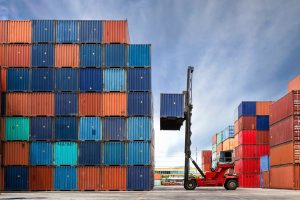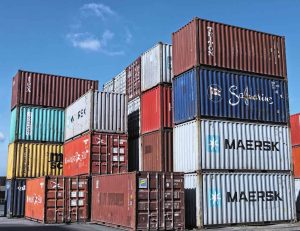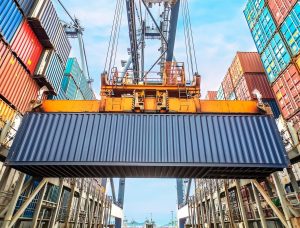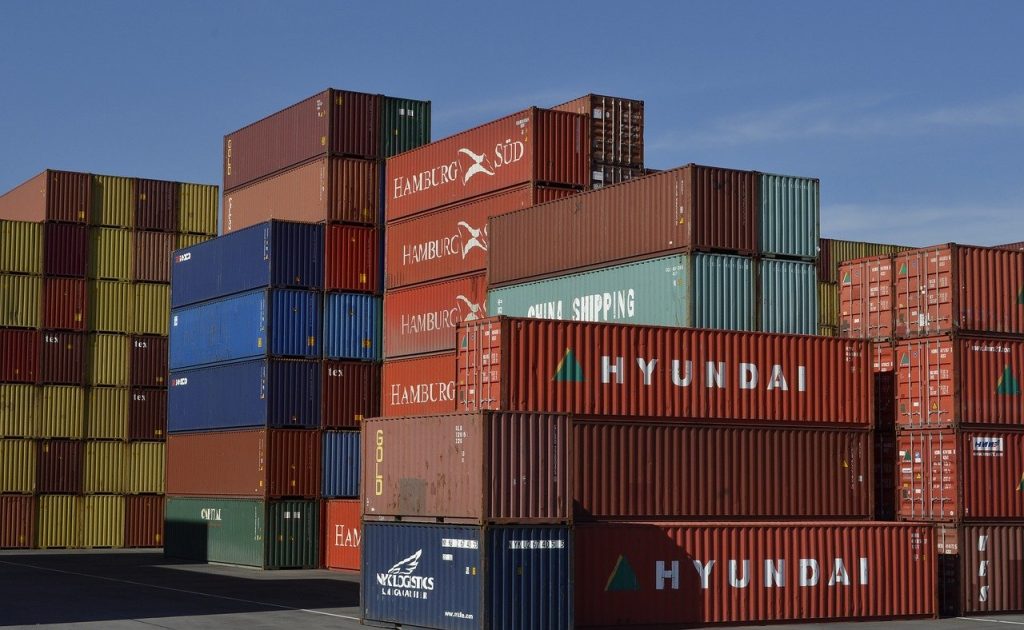Types of containers are most often used in the cargo industry
Types of containers are most often used in the cargo industry.
Container shipping can be called the backbone of international trade. There is in-depth knowledge in properly arranging cargo transportation through global shipping routes.
World Courier will explore the various types of containers, container sizes.
What is a Shipping Container?
Shipping containers are large sturdy boxes made of metal, used to transport goods over long distances. Standard containers, often referred to as multi-purpose containers, are widely used in transportation by rail, road, or sea, simplifying the process of transporting, storing, and handling cargo. This provides more efficiency to international freight forwarding and generates economic benefits.

Containers Type Based on Size
Choosing the right container not only guarantees cargo safety, but also saves costs. Using standard containers for medicines can increase the risk of damage and customs issues, potentially costing time and money.
- 20 FT Container
A container that is 5.90 meters long, 2.35 meters wide and 2.39 meters high is a 20-foot variant. The payload capacity reaches 25,000 kg, and the cubic volume is 33 cubic meters for a 20′ container.
- 40 FT Container
The 40-foot container is 12.03 meters long, 2.4 meters wide, and 2.39 meters high. The payload capacity of the 40-foot container reaches 27,600 kg and the room has a volume of 67.7 cubic meters.
- 45 FT Container
Designed to transport goods across various modes of transportation, these cube containers that reach a height of 45 feet are suitable for large, lightweight cargo and are susceptible to minimal damage. The container has two doors at one end, and the extra height makes loading and unloading easier using a forklift.

Containers Type Based on Load
Shipping containers come in a wide variety of dimensions and types. This is a refresher on the different types of shipping containers, including some that are rarely used today, along with their sizes and information regarding their use and purpose.
- Containers Type: Dry Storage
Dry storage containers are the most common type used in the shipping sector. Available in 20, 40, and 45 feet, these containers are made for transporting dry cargo. However, the temperature in the container cannot be controlled, making it unsuitable for food items or chemicals that require refrigeration.
- Containers Type: Flat Rack Containers
Flat rack containers are a specially designed type of container with no walls or roof on the long sides. This advantage allows loading of cargo with various dimensions and shapes to be more efficient and practical.
As a result, this special type of container can be used to ship and store large cargo such as machinery, wood, pipes, vehicles, and the like.
- Containers Type: Open Top Containers
Open-top containers have a top that is not covered with a strong roof, but is covered with tarpaulin. In this way, large cargo such as lumber and scrap metal could be loaded from above.
In addition, open-top containers are generally equipped with a door at one end, similar to closed containers, to facilitate the loading and unloading process more flexibly.
- Containers Type: Tunnel Containers
Tunnel type containers offer double access with two standard sets of double doors, one at each end. This makes access to both sides of the container easier.
Typically, tunnel type shipping containers are ordered by clients who want easy access to the contents of their container.
- Containers Type: Open Side Storage Containers
An open-sided container or side-opening container is a type of shipping container that has double doors that can be locked at one end, as well as an additional pair of folding doors at one of the longer sides.
The side door equipped with a folding mechanism allows for two different opening sizes.
- Containers Type: Refrigerated ISO Container (Reefer)
Refrigerated Containers, also known as reefer containers, refrigerated containers provide a shipping alternative for goods that require controlled temperature settings.

There are many types of containers, each with a specific purpose and serving a wide range of industries and lifestyles. No matter whether you are shipping cargo across oceans, storing personal items, or ensuring the freshness of food, there is always a container made specifically to meet your needs.
World Courier has provided some essential information. This essay should help you better grasp the modern air transportation industry!
You may concern:

